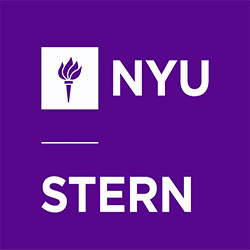 J.P. Eggers is a Professor of Management & Organizations, and the Academic Director of the Tech & Entrepreneurship MBA Program at NYU Stern. His research focuses on how organizations often struggle developing new, innovative products, and how they deal with technological change. Prior to academia, he was a strategy and technology consultant working with large and small companies trying to adapt to digitization. He has a PhD from Wharton, an MBA from Emory, and a BA from Amherst College.
J.P. Eggers is a Professor of Management & Organizations, and the Academic Director of the Tech & Entrepreneurship MBA Program at NYU Stern. His research focuses on how organizations often struggle developing new, innovative products, and how they deal with technological change. Prior to academia, he was a strategy and technology consultant working with large and small companies trying to adapt to digitization. He has a PhD from Wharton, an MBA from Emory, and a BA from Amherst College.
How does the Tech MBA prepare students for entrepreneurship?
We’ve built this program with entrepreneurship at its core, on the assumption that everyone here will want to start a business at some point in their career. From hands-on courses designed around the ecosystems in New York (summer) and the west coast (January), to foundational technology and business courses, to a wealth of electives, the program seeks to strike the right balance for future founders to get them the tools they need, and then get them out building.
What resources are available to Tech MBA students interested in pursuing entrepreneurship?
Within the program itself, you will spend time with founders, funders, and advisors to learn about their perspectives and journeys. You will get access to a growing network of deeply committed alums, many of whom have founded and even exited their businesses. More broadly within Stern, you have full access to the resources in the Berkley Center for Entrepreneurship, which hosts pitch competitions and advising network opportunities. You can also take the Endless Frontier Labs course, helping many of the top funders (VC and corporate) in the world shape brand new science and technology based companies. Beyond Stern, you have access to NYU’s Entrepreneurial Institute and the Leslie eLab just down the block, which give you access to the entirety of NYU and hosts events, meetups, competitions, and advising opportunities.
Do students interested in entrepreneurship typically have a business idea prior to the program, or do they come up with ideas through their coursework?
Our first cohort in 2018 had two students who were founders before they came to Stern. They already had companies they could build while in the program – one student started their company as a side hustle, while another was one earlier in the process. Both built their Tech MBA experience around trying to help build and launch their companies. Subsequent founders, however, have come in at virtually every stage – one had a blog post and nothing else, two created the idea together to enter the Berkley Center’s pitch competition. We’ve even had students who came to Stern after founding and exiting companies, with the idea of building new skills and a new network, and getting back out there.
How have you seen the intimate cohort size benefit students interested in entrepreneurship?
The power of the cohort is incredibly strong. Everyone comes in with a deep interest and background in technology and/or entrepreneurship, so the shared experience provides a perfect foundation. Your cohort could easily include your co-founder, your target customer and focus group participant, your connection to funding, and the subject matter expert who can help you solve that crazy challenge you’ll face in three years. The small cohort size and the intense shared experience, especially in the summer, builds exceptional bonds. Entire cohorts have gone on vacation together, and attended each others’ weddings.
What classes do you recommend future entrepreneurs take in the Tech MBA?
Aspiring founders have many options for electives, including (but not limited to) the Endless Frontier Labs course I mentioned earlier. Many students choose to pursue at least some more “traditional” MBA courses, helping them hone their finance skills and become better leaders. Some courses that are particularly appropriate for entrepreneurship include Entrepreneurial Finance, Managing a High Tech Company: The CEO Perspective, Managing the Growing Company, Technology Innovation Strategy, and Emerging Technologies & Business Innovation, just to name a few.
Can you share some success stories from past Tech MBA students?
It’s tough to limit the success stories to a few, but hopefully I can paint the picture of different entrepreneurial paths our Tech MBAs have during their next chapter. One thing that I’m especially proud of is how entrepreneurial our Tech MBAs are regardless of their role, function or company – they’ve shown that you don’t (necessarily) need to be a founder to create real change and flip a traditional process. We’ve had the opportunity to connect with alums who see themselves as “intrapreneurs” guiding new visions through a company to create real change, as well. In our eyes, both paths – intrapreneurship and entrepreneurship – are success stories to demonstrate how our strategic curriculum supports new ideas and new ways of thinking during the program and beyond. Alums like Akanksha and Vera are driving innovation efforts at top global companies, whereas Ethan and David joined companies early on to support the launch of the business. We also have a few success stories that fit the more classic entrepreneurial path like Sam and Jeff who have completely chartered their own courses. Entrepreneurship can take many different forms and paths, and we’re proud of our Tech MBAs that are driving positive change no matter the size or scale.





























